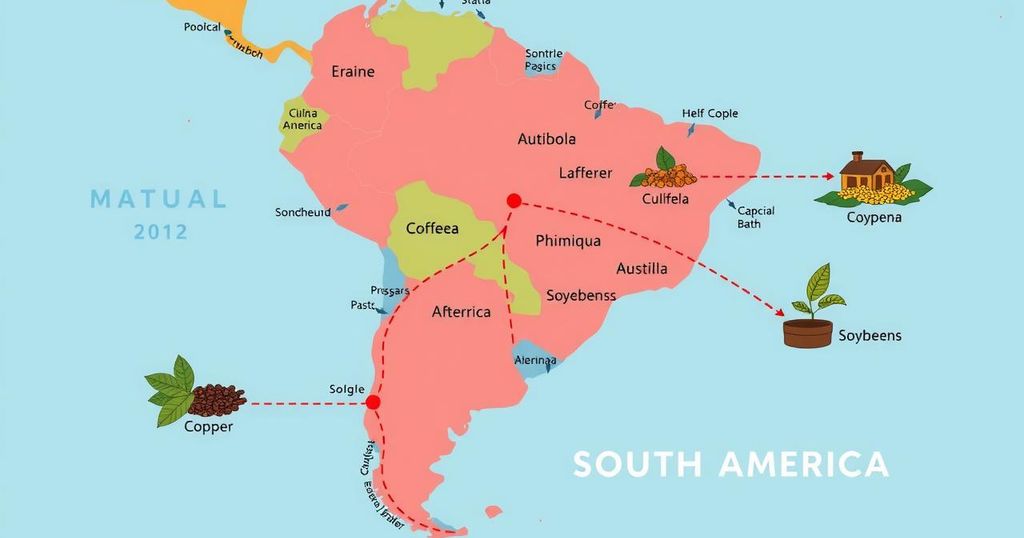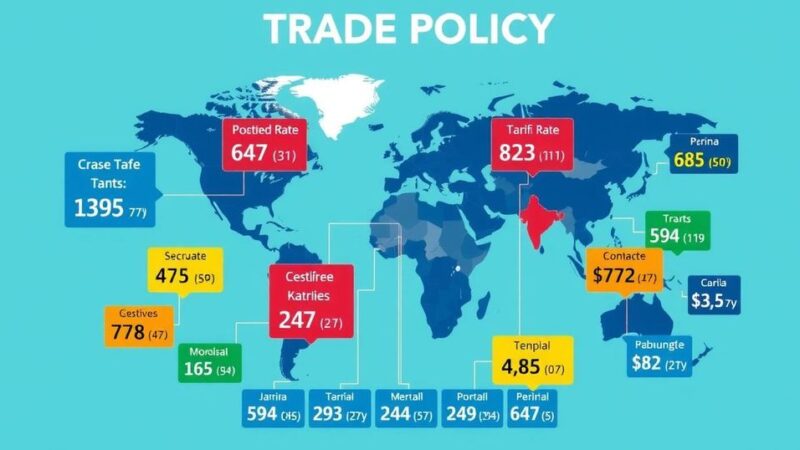Canada seeks diversification in trade due to American protectionism, considering Mercosur as a potential partner. Experts have differing views on the benefits of a Canada-Mercosur trade agreement, with some highlighting competition and challenges. The need for thorough analysis of trade impacts remains essential as Canada aims to strengthen ties with South America.
In light of growing American protectionism, Canada is contemplating trade diversification strategies, particularly towards South America. Mercosur, considered the largest trade bloc without a trade agreement with Canada, could provide potential benefits, according to Rambod Behboodi, an international trade lawyer. He emphasized that with an unstable partnership with the U.S., Canada should seek new commercial partners beyond North America.
Founded in 1991 by Argentina, Brazil, Paraguay, and Uruguay, Mercosur aims to facilitate trade through the removal of customs duties among its members and the implementation of a common external tariff, currently averaging 11.5 percent. Venezuela’s membership was suspended in 2016, while Bolivia became a full member this year. Canada formally commenced negotiations for a free trade agreement with Mercosur in 2018; however, little progress has been made since.
Behboodi noted the importance of forging this agreement, as Canada could face competitive disadvantages without it, particularly given the recently finalized EU-Mercosur agreement. He claimed that although the U.S. market remains pivotal, interim measures must be sought to lessen dependence on it while exploring growth opportunities in South America.
Statistics indicate that Canadian imports from Brazil plummeted by 18 percent recently, despite Brazilian exports to Canada rising by 9 percent. Canada’s ambassador to Germany, Evelyne Coulombe, advocated for finalizing a Canada-Mercosur trade agreement, believing it could enhance Canada’s ties with Brazil and benefit various sectors, including oil, gas, renewable energy, and technology.
Conversely, Fen Olser Hampson, an academic specialist in international relations, expressed skepticism regarding a trade agreement’s benefits. He argued that Canada and Brazil produce similar goods, which might hamper trade efficacy, especially in crucial manufacturing sectors. He suggested Canada should prioritize expanding its trade relationships within Asia and Europe instead.
Bernardo Blum, a professor specializing in economic analysis, suggested analyzing the EU-Mercosur agreement to gauge its trade impact. Blum indicated that despite the potential for trade increases, noticeable benefits of a Canada-Mercosur agreement may be limited due to Mercosur’s smaller trading scale compared to the EU. Furthermore, concerns about agricultural competition and socio-environmental issues are associated with such trade agreements.
Experts emphasize that while Canada seeks to diversify its trade, caution should be exercised when negotiating with Mercosur to fully understand potential markets and industries involved. Nevertheless, a broader assessment of trade practices is required to maximize effectiveness.
In conclusion, Canada is actively exploring trade diversification, particularly with Mercosur amid increasing American protectionism. While some experts see potential benefits in negotiating a free trade agreement, concerns about product competition, market similarities, and limited trade impact persist. Careful consideration and analysis of existing trade agreements are necessary to navigate these opportunities and ensure Canada strategically strengthens its trade relationships with South America and beyond.
Original Source: financialpost.com






